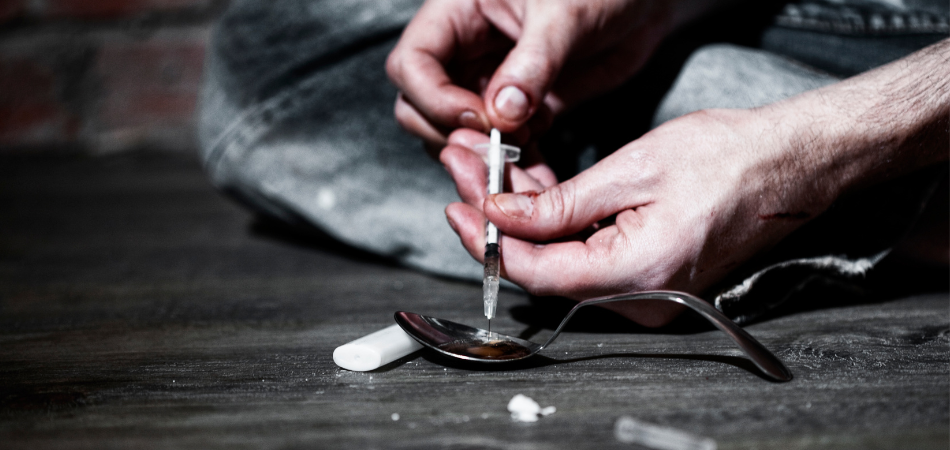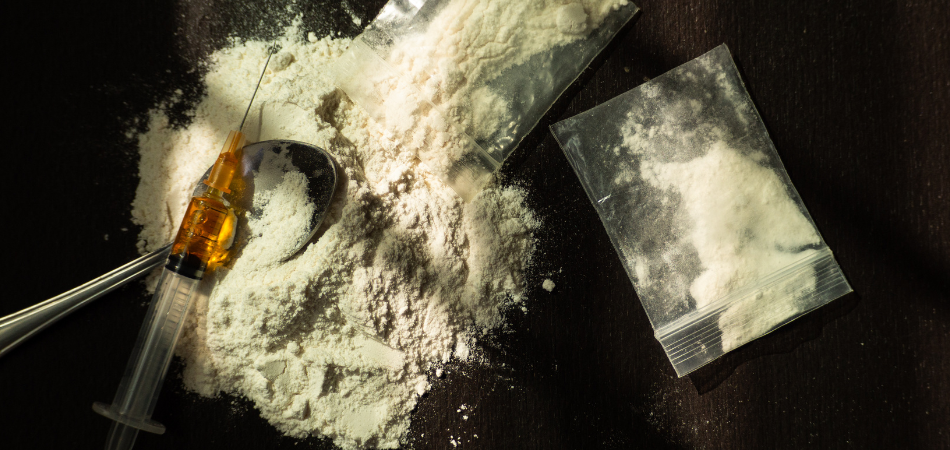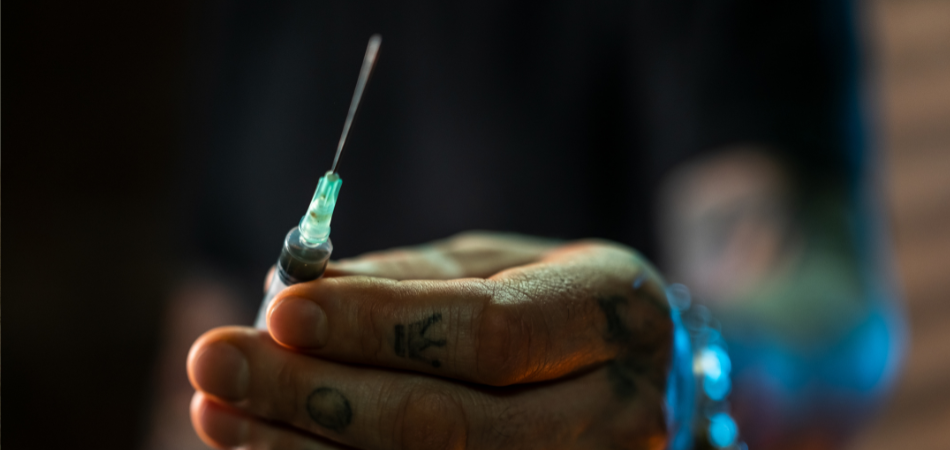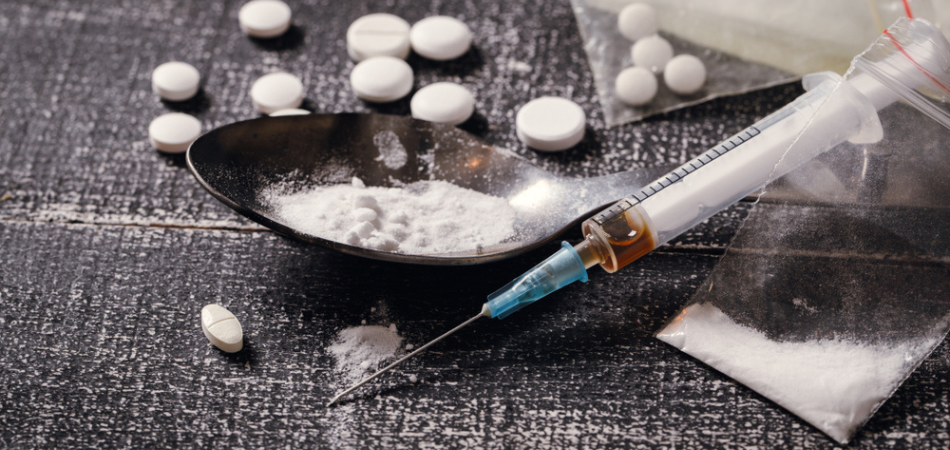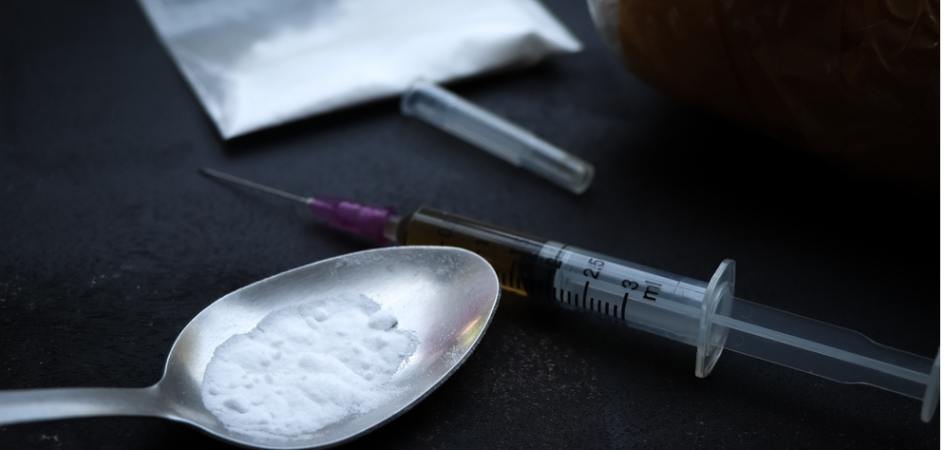
Written by:

Medically Reviewed by:
Last Updated:
September 19th, 2025
Heroin addiction
Heroin addiction has long been a prevalent and devastating issue, affecting individuals, families, and communities worldwide. It is a complex disorder that poses significant challenges to those entangled in its grip.
We will delve into the dark realities of heroin addiction, exploring its causes, effects, and signs to look out for.
What is heroin?
Heroin, derived from morphine, is an illegal opioid drug synthesised from the opium poppy plant that you can sort, swallow, smoke or inject. Heroin has a powerful and rapid impact on the brain, producing intense feelings of euphoria and relaxation. However, these effects are short-lived, leading individuals to seek repeated doses to maintain the desired high. Unfortunately, what may begin as occasional recreational use can rapidly escalate into a full-blown addiction, characterised by a compulsive need to seek and use the drug.
What is heroin addiction?
Heroin addiction refers to chronic and compulsive dependence on the drug. Heroin addiction develops as a result of the drug’s impact on the brain’s reward system. When heroin enters the body, it rapidly crosses the blood-brain barrier and binds to opioid receptors, which are concentrated in areas associated with pleasure and reward. This interaction floods the brain with dopamine, a neurotransmitter involved in feelings of pleasure and reinforcement. Over time, the brain becomes accustomed to the presence of heroin and adjusts its natural chemistry to accommodate its effects. As heroin use continues, tolerance develops, meaning higher doses of heroin are needed to achieve the same level of euphoria. This cycle of increasing drug use sustains addiction.
Physical dependence also develops, leading to withdrawal symptoms when the drug is not consumed. Withdrawal symptoms can be extremely uncomfortable and may include intense cravings, body aches, nausea, insomnia, anxiety, and depression.
What are the causes of heroin addiction?
Addiction, including heroin addiction, is a complex interplay of genetic, environmental, and psychological factors. Some individuals may be more predisposed to developing a heroin addiction due to genetic factors that influence the way their brains respond to drugs. Environmental factors such as trauma, stress, exposure to drugs at an early age, and social circles that promote drug use can also contribute to the development of addiction.
Whatever the causes of your addiction to heroin, identifying and addressing them is crucial to long-term recovery.
How do I know if I am addicted to heroin?
If you’re concerned that you may have a heroin addiction, there are some symptoms to look out for. However, it’s important to know that heroin addiction can manifest in unpredictable ways.
Heroin symptoms can include:
- Finding that your thoughts are preoccupied with seeking and using heroin
- Neglecting home and work responsibilities
- Strained relationships with loved ones
- Difficulties at work
- Losing interest in activities you used to enjoy
- Experiencing physical withdrawal symptoms when you try to stop using heroin
- Social isolationWanting to stop using heroin but being unable to
If you are currently using heroin, it is crucial to reach out for professional support without delay. Getting help at the earliest possible stage is crucial to a more manageable recovery process.
What are the signs of heroin abuse in a loved one?
If you’re worried that a loved one may be using heroin, it’s important to know the signs of heroin abuse so you can offer appropriate help.
Signs of heroin abuse:
- Changes in peer group
- Social isolation
- Unexplained changes in mood
- Unexplained financial difficulties
- Unexplained outings
- Lying or secretive behaviour
- Drug paraphernalia, such as needles or syringes
- Neglect of personal hygiene and self-care
- Unexplained weight loss
If a loved one is addicted to heroin, it can be challenging to know how to respond. You may feel scared, frustrated or confused.
Having an open and honest conversation is a good place to start. You can tell them how you feel and mention how their heroin addiction may be affecting you. It’s important to show them your support, love and care.
If they refuse to accept their problem with heroin or behave in a harmful way, staged interventions can help. Don’t forget you should never tolerate abusive behaviour.
What support is available for heroin addiction?
Oasis Bradford is dedicated to providing comprehensive support for anyone battling heroin addiction. We will help you throughout your heroin rehab programme, from guiding you through the necessary heroin detox process to supporting you as you open up throughout therapy.
With our expertise and compassionate approach, we can ensure a safe and comfortable recovery process.
It is important to note that heroin addiction is a chronic relapsing disorder, meaning that even after periods of recovery or abstinence, there is a risk of relapse. That’s why Oasis Bradford offers a year’s worth of free aftercare to guide you through the following months, in the form of weekly group therapy. We’re here for you if you need extra motivation, expert advice or want to learn new skills.
Make the Change Today
At Oasis Bradford, we address the causes of your heroin addiction and guide you to life-long recovery. Our safe and supportive environment enables you to self-reflect, develop, and practise the skills you need to maintain abstinence.
Our doors are open to anyone who needs it, so get in touch with us today to take the first step towards freeing yourself from heroin addiction.






